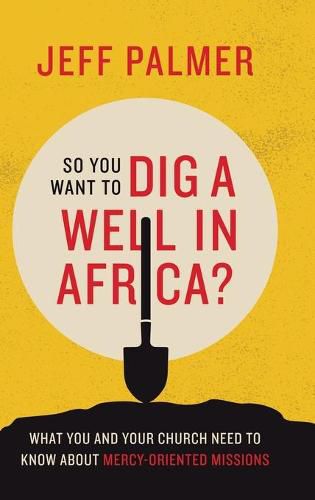Readings Newsletter
Become a Readings Member to make your shopping experience even easier.
Sign in or sign up for free!
You’re not far away from qualifying for FREE standard shipping within Australia
You’ve qualified for FREE standard shipping within Australia
The cart is loading…






This title is printed to order. This book may have been self-published. If so, we cannot guarantee the quality of the content. In the main most books will have gone through the editing process however some may not. We therefore suggest that you be aware of this before ordering this book. If in doubt check either the author or publisher’s details as we are unable to accept any returns unless they are faulty. Please contact us if you have any questions.
Typical missions projects involve dozens of people in identical T-shirts getting on an airplane to go somewhere and help a needy community. But do those projects actually help people in the long run? Does this work create long-term systemic change in individuals and the community? And does the work lead to intentionally sharing Christ? In other words, is our mission work based on good missions strategy that brings about sustainable change and kingdom impact for communities, or is our approach focused only on creating a positive experience for everyone involved?
So You Want to Dig a Well in Africa? highlights ten common myths people and organizations believe about missions. Exploring the ways in which American churches take on missions, author Jeff Palmer
highlights pitfalls of equating mission trips with ministry projects;
offers valuable techniques to avoid unintentional but harmful practices that stem from a poor community development model;
presents tools for designing, implementing, and evaluating strong, mercy-oriented mission strategies; and
discusses key elements for evaluating mission programs: participation, sustainability, and transformation.
Offering a resource for those seeking to work for the good of people but also for the glory of God, this guide highlights faulty models used for mercy-oriented missions and give a framework for creating sustainable change in people and communities.
$9.00 standard shipping within Australia
FREE standard shipping within Australia for orders over $100.00
Express & International shipping calculated at checkout
This title is printed to order. This book may have been self-published. If so, we cannot guarantee the quality of the content. In the main most books will have gone through the editing process however some may not. We therefore suggest that you be aware of this before ordering this book. If in doubt check either the author or publisher’s details as we are unable to accept any returns unless they are faulty. Please contact us if you have any questions.
Typical missions projects involve dozens of people in identical T-shirts getting on an airplane to go somewhere and help a needy community. But do those projects actually help people in the long run? Does this work create long-term systemic change in individuals and the community? And does the work lead to intentionally sharing Christ? In other words, is our mission work based on good missions strategy that brings about sustainable change and kingdom impact for communities, or is our approach focused only on creating a positive experience for everyone involved?
So You Want to Dig a Well in Africa? highlights ten common myths people and organizations believe about missions. Exploring the ways in which American churches take on missions, author Jeff Palmer
highlights pitfalls of equating mission trips with ministry projects;
offers valuable techniques to avoid unintentional but harmful practices that stem from a poor community development model;
presents tools for designing, implementing, and evaluating strong, mercy-oriented mission strategies; and
discusses key elements for evaluating mission programs: participation, sustainability, and transformation.
Offering a resource for those seeking to work for the good of people but also for the glory of God, this guide highlights faulty models used for mercy-oriented missions and give a framework for creating sustainable change in people and communities.